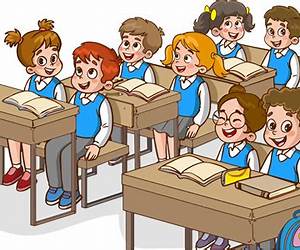To a Pupil By Walt Whitman
To a pupil pdf summary
Walter Whitman 1819 1892 was an American poet essayist journalist and humanist He was a part of the transition between Transcendentalism and realism incorporating both views in his works Whitman is among the most influential poets in the American canon often called the father of free verse. To a pupilperceptions Born on Long Island Whitman worked as a journalist a teacher a government clerk and a volunteer nurse during the American Civil War in addition to publishing his poetry Early in his career he also produced a temperance novel Franklin Evans 1842. Book to a pupil analysis After working as clerk teacher journalist and laborer Whitman wrote his masterpiece Leaves of Grass pioneering free verse poetry in a humanistic celebration of humanity in 1855 site_link Emerson who Walter Whitman 1819 1892 was an American poet essayist journalist and humanist He was a part of the transition between Transcendentalism and realism incorporating both views in his works Whitman is among the most influential poets in the American canon often called the father of free verse. Kindle to a pupil review Born on Long Island Whitman worked as a journalist a teacher a government clerk and a volunteer nurse during the American Civil War in addition to publishing his poetry Early in his career he also produced a temperance novel Franklin Evans 1842. Book driving test for pupil After working as clerk teacher journalist and laborer Whitman wrote his masterpiece Leaves of Grass pioneering free verse poetry in a humanistic celebration of humanity in 1855 site_link Emerson whom Whitman revered said of Leaves of Grass that it held incomparable things incomparably said During the Civil War Whitman worked as an army nurse later writing Drum Taps 1865 and Memoranda During the War 1867 His health compromised by the experience he was given work at the Treasury Department in Washington D. Book to a pupil in school C After a stroke in 1873 which left him partially paralyzed Whitman lived his next 20 years with his brother writing mainly prose such as Democratic Vistas 1870 Leaves of Grass was published in nine editions with Whitman elaborating on it in each successive edition In 1881 the book had the compliment of being banned by the commonwealth of Massachusetts on charges of immorality A good friend of site_link Robert Ingersoll Whitman was at most a Deist who scorned religion D 1892. To a pupil book pdf download More site_link site_link site_link site_link site_link site_link site_link Walter Walt Whitman 1819 1892 was an American poet essayist and journalist A humanist he was a part of the transition between transcendentalism and realism incorporating both views in his works Whitman is among the most influential poets in the American canon often called the father of free verse Whitman s work breaks the boundaries of poetic form and is generally prose like He also used unusual images and symbols in his poetry including rotting leaves tufts of straw and debris He also openly wrote about death and sexuality including prostitution He is often labeled as the father of free verse though he did not invent it Whitman wrote in the preface to the 1855 edition of Leaves of Grass The proof of a poet is that his country absorbs him as affectionately as he has absorbed it He believed there was a vital symbiotic relationship between the poet and society This connection was emphasized especially in Song of Myself by using an all powerful first person narration As an American epic it deviated from the historic use of an elevated hero and instead assumed the identity of the common people Leaves of Grass also responded to the impact that recent urbanization in the United States had on the masses To a Pupil
| To a Pupil By Walt Whitman |
| 1522717382 |
| 9781522717386 |
| 40 |
| Paperback |
| book to a pupil review |
| book to a pupil in the library |
| book to a pupil summary |
| book to a pupil in school |
| book to a pupil in need |
| book to a pupil analysis |
| book to a pupil |
| book driving test for pupil |
| apt pupil book |
| jolly phonics pupil book 1 pdf free download |
| jolly phonics pupil book 1 |
| to a pupil book summary |
| to a pupil book analysis |
| to a pupil book review |
| to a pupil book pdf |
 .
.